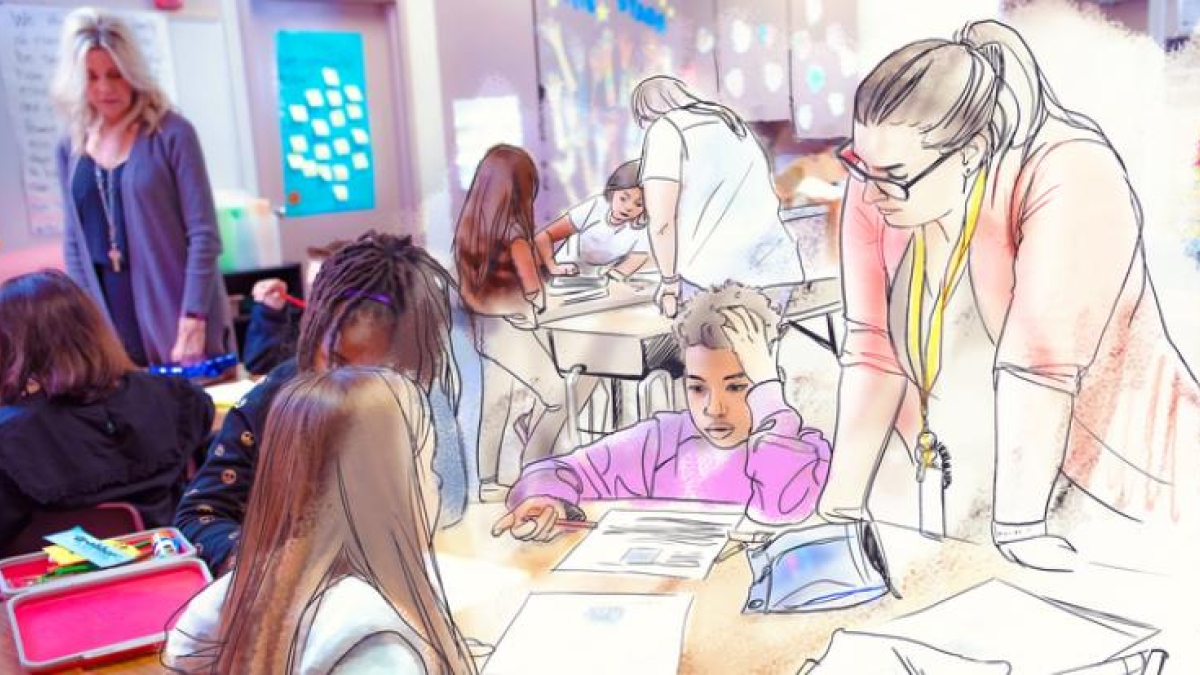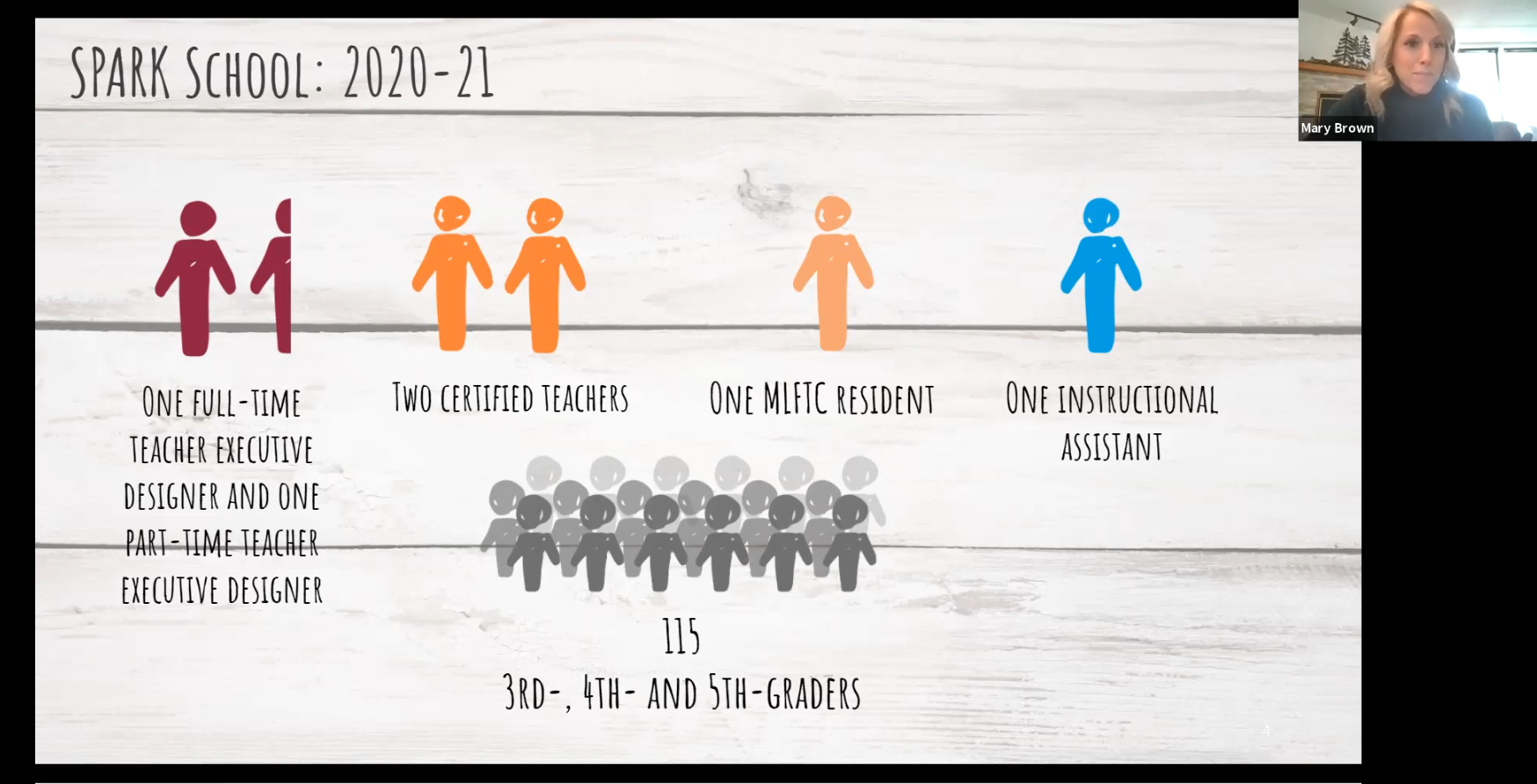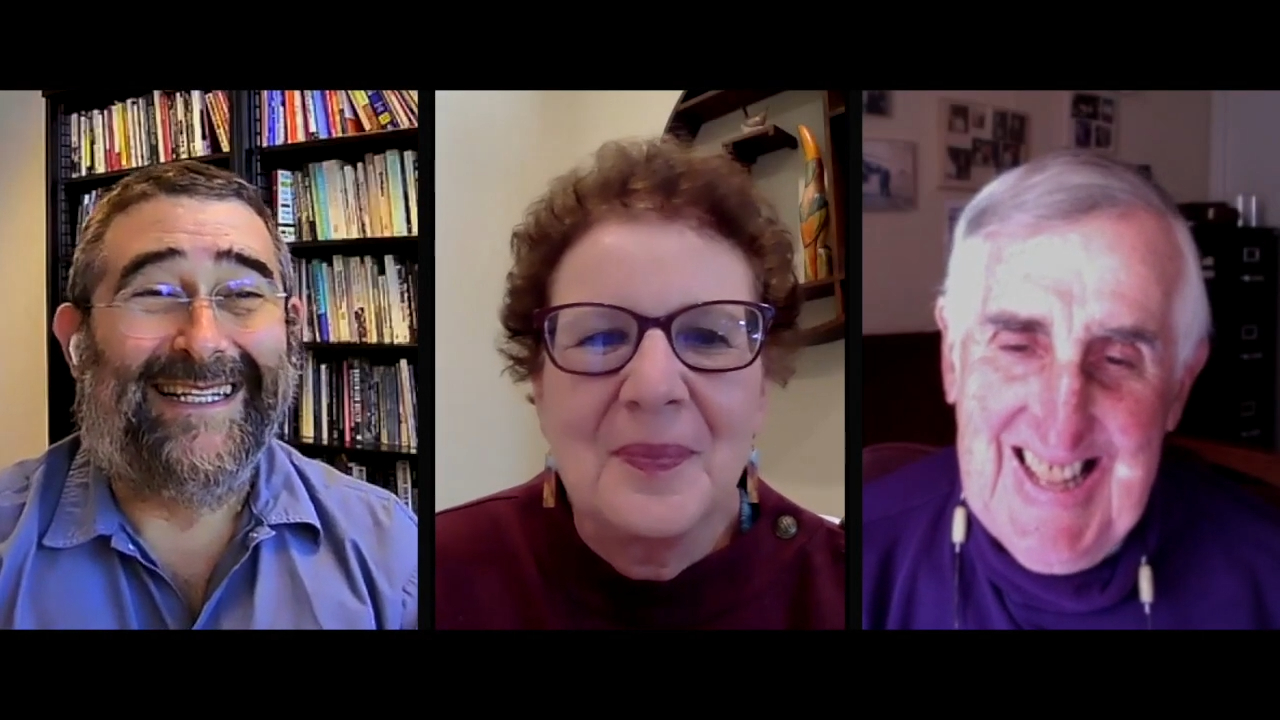For two days in January, more than 270 educators and education experts from around the country gathered virtually at the invitation of ASU’s Mary Lou Fulton Teachers College to address a big question: What should the next education workforce look like so that schools can provide better educational experiences to learners and better professional experiences to educators?
The event, Next Education Workforce: Building the Next Normal, was the outgrowth of work that Mary Lou Fulton Teachers College has been pursuing for four years. The goal, says Carole Basile, dean of the college, “is to shift thought, conversation and action about education challenges from discrete programs and initiatives to systemic and structural approaches.”
Brent Maddin, executive director of Next Education Workforce at the college, readily agrees that this goal is big.
“This is not about working around the margins to improve test scores or show a slight increase in the number of teachers certified in a state. This is not about developing yet another professional development program for teachers or another leadership program for superintendents,” he said. “This is about creating the conditions in which those things can sustainably succeed in making the best possible difference in the lives of learners and educators. This is an acknowledgement of the size and scope of what we’re facing in education.”
The two-day program Jan. 28–29 attracted a mix of participants from P–12 schools, universities, think tanks, nonprofit organizations and foundations. They came from the Learning Policy Institute, the Chan Zuckerberg Initiative, Stanford University, the Christensen Institute and from schools across Arizona. They included nonprofit leaders and historians of education reform, leaders of organizations dedicated to diversity in education and to personalization, as well as practicing teachers, principals and school superintendents from across the country. Over the two days they moved through presentations and structured breakouts that addressed four topic questions:
How might we empower teams of educators to identify, address and monitor issues of equity for all learners?
How might we leverage teams of educators to design deeper, more personalized learning experiences for all students?
How might we design policies at the local, state and national levels that support the development of the Next Education Workforce?
How might we design teacher and leader preparation programs to build the Next Education Workforce?
Among the experts who led conversations about these topics — equity, personalized learning, policy and educator preparation — were Lynn Gangone, president and CEO of the American Association for College of Teacher Education; Peggy Brookins, president and CEO of the National Board for Professional Teaching Standards; Maria Hyler, deputy director of the Learning Policy Institute’s Washington, D.C., office; and Virgel Hammonds, chief learning officer at KnowledgeWorks, a national nonprofit that is working with the college and the Center for the Future of Arizona; and others.
Many of the experts also sat down with Maddin to record the first season of the Next Education Workforce Podcast, in which they dive deeper into the major themes addressed at the convening.
“It was important to structure the conversations around these questions,” said Maddin. “They align with the two goals of our work. First, we need to provide all students with deeper and personalized learning by building teams of educators with distributed expertise. Second, we should empower educators by developing new opportunities for role-based specialization and advancement.”
A workforce design challenge
For 30 years, too few people have been entering the teaching profession. Nationally, teacher preparation programs have long seen declining enrollment (although Mary Lou Fulton Teachers College has seen new enrollment in teacher-prep programs grow for two straight years). Teachers retire early. The shortage of teachers drives districts and states to alternative and emergency teacher certification pathways, which in turn populate schools with teachers who are often less equipped to support all of the learning needs of their students and less likely to persist long enough in the profession to attain a level of skill and competence that would enable them to do so.
Leadership retention is also an issue. Superintendents and principals switch jobs frequently or leave the profession altogether, thus depriving communities of the school leadership stability that correlates with leaner success.
Mary Brown, teacher executive designer at SPARK School at Kyrene de las Manitas, shares how the school uses teams of educators to deepen and personalize learning for students. SPARK is a partner school of Mary Lou Fulton Teachers College’s Next Education Workforce and one of five schools highlighted at the two-day national convening.
And, as a March 2019 paper published by the Economic Policy Institute as part of its “The Perfect Storm in the Teacher Labor Market” series, the negative consequences of a faltering education workforce are more acute in high-poverty schools.
“These are long-lamented problems,” said Maddin. “Teacher shortage, burnout, leadership attrition and the fact that these challenges hit harder in low-income communities and communities of color. We have been tackling these problems for a long time.Their very persistence suggests that to continue to frame things primarily as a labor supply problem is to profoundly misread the challenge.
“We’re not just facing a teacher supply problem. We’re facing a workforce design problem. If, as a society, we’re not getting the education workforce or the learning outcomes we want, it’s time to redesign the profession, the workplace and how we prepare people for both.”
Leveraging ASU’s position
For the last four years, ASU’s Mary Lou Fulton Teachers College has been designing itself to address that challenge.
“As a college of education, we have a lot of leverage to bring people and ideas together,” said Basile. “And as ASU, we have the freedom — and a mandate — to try to do the hard, big things.”
Basile notes that, as a college of education that operates a large teacher preparation, Mary Lou Fulton Teachers College occupies an important position in the labor supply chain. “There is great demand for our graduates. But even before that, there is great demand for our students as interns and residents. So we’re fortunate to have district partners who are eager to work with us to create models in their schools of how teams of educators can work together.”
The college is developing a library of resources to help schools develop teaming models. Resources include briefs on topics such as deeper and personalized learning, blueprints for how teams of educators can distribute expertise and tools that help superintendents identify district readiness and develop staffing strategies.
ASU also has intellectual influence and world-class capability for conducting use-inspired research. In the 2021 U.S. News & World Report rankings of U.S. graduate colleges of education, ASU ranked second nationally in the amount of research dollars spent.
Accordingly, Mary Lou Fulton Teachers College is implementing a research agenda that Basile says “aims to improve how we measure learning outcomes and professional development outcomes, as well as how we more holistically assess learning and professional environments.”
Perhaps most importantly, ASU has the convening power to bring the right stakeholders together to generate sustainable systems change.
“The best part of most conferences is what happens on the sidelines in hallways and at coffee breaks,” said Maddin. “We were virtual. So we didn’t have hallways. But we had one-to-one chat functions and messaging. And we tried to create virtual interactions that could spark real relationships. And it appears we did. People want to do this again. More importantly, they want to work together in real schools with real teachers and learners before we do this again. And that’s what matters. Because effecting positive systemic change in education has to be a movement.”
Avoiding groundhog day
People at Mary Lou Fulton Teachers College are acutely aware that they are not the first to have taken up the banner of sweeping systemic change in education. Nor are they the first to champion team-based teaching, emphasize personalized learning or tie the learning success of children to the professional satisfaction of adult educators.
Lisa Wyatt, senior program strategist, Next Education Workforce, played a leading role in developing the agenda for the convening. She says that the college's team has been conscious of “not wanting this work to be 'Groundhog Day.' That’s why we kicked off this national convening with one of the leading historians of education.”
Researcher, historian and practitioner Larry Cuban (right) offered insights on the challenging history of school reform in a conversation with Mary Lou Fulton Teachers College Dean Carole Basile, moderated by MLFTC’s Sherman Dorn.
Larry Cuban, professor emeritus of education at Stanford University and former president of the American Educational Research Association, joined Dean Carole Basile for a conversation on education history and reform, moderated by Mary Lou Fulton Teachers College professor and education historian Sherman Dorn.
Says Basile, “Larry has been engaged with how to make education better for decades. No one has observed reform plans and improvement schemes come and go as closely as Larry. His superpower is challenging flavor-of-month simplifications and magical thinking. So we thought he would be the ideal person to set the table for us and stress-test some of our assumptions as we expand the national conversation based on our work.”
The conversation was wide-ranging, touching on the fact that team teaching, personalization and a desire to elevate the education profession are not new.
“Our impact, will come from how we bring these concepts together and how we bring people and institutional capacity together," said Basile. "Transformative innovation rarely involves the conjuring of something entirely new into the world. It is almost alway a recombinant thing.”
More Arts, humanities and education

2 ASU professors, alumnus named 2025 Guggenheim Fellows
Two Arizona State University professors and a university alumnus have been named 2025 Guggenheim Fellows.Regents Professor Sir Jonathan Bate, English Professor of Practice Larissa Fasthorse and…

No argument: ASU-led project improves high school students' writing skills
Students in the freshman English class at Phoenix Trevor G. Browne High School often pop the question to teacher Rocio Rivas.No, not that one.This one:“How is this going to help me?”When Rivas…

ASU instructor’s debut novel becomes a bestseller on Amazon
Desiree Prieto Groft’s newly released novel "Girl, Unemployed" focuses on women and work — a subject close to Groft’s heart.“I have always been obsessed with women and jobs,” said Groft, a writing…




